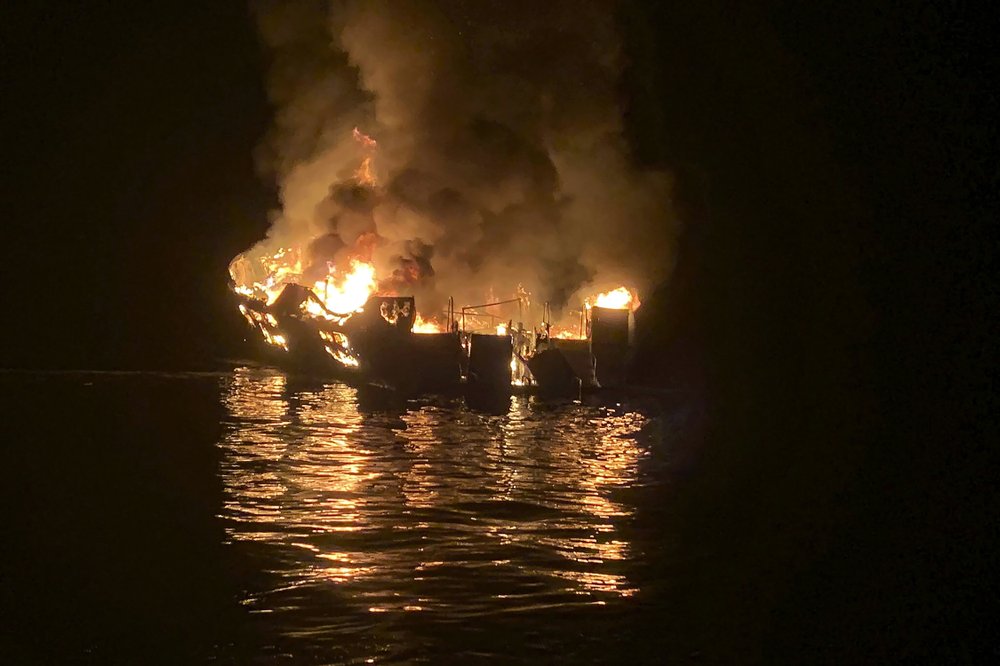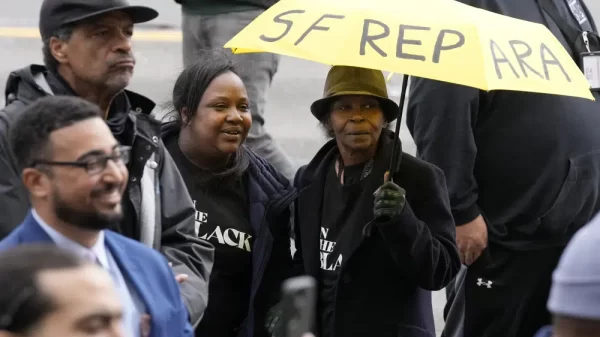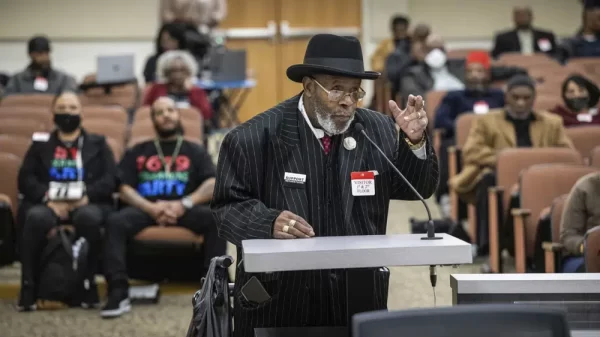FILE – In this Sept. 2, 2019, file photo provided by the Santa Barbara County Fire Department, the dive boat Conception is engulfed in flames after a deadly fire broke out aboard the commercial scuba diving vessel off the Southern California Coast. Federal authorities are expected to vote Tuesday, Oct. 20, 2020 on what likely sparked a fire aboard a scuba dive boat last year that killed 34 people off the coast of Southern California. The pre-dawn blaze aboard the Conception is one of California’s deadliest maritime disasters, prompting both criminal and safety investigations into the Sept. 2, 2019 tragedy that claimed the lives of 33 passengers and one crew member on a Labor Day weekend expedition near an island off Santa Barbara. (Santa Barbara County Fire Department via AP, File)
LOS ANGELES (AP) — One of the deadliest accidents in recent U.S. maritime history was the fault of owners of a Southern California dive boat whose lack of oversight resulted in a fire that swept through the vessel and killed 34 people in their bunks below deck, federal safety officials ruled Tuesday.
The National Transportation Safety Board said the Conception’s captain failed to post a roving night watchman aboard the vessel, which allowed the fire to quickly spread and trap the 33 passengers and one crew member. The NTSB also faulted the Coast Guard for not enforcing that requirement and recommended it develop a program to ensure boats with overnight passengers actually have the watchman.
Last year’s tragedy during a Labor Day weekend scuba diving excursion near Santa Cruz Island off Santa Barbara prompted criminal and safety investigations. Court documents say charges against the captain, Jerry Boylan, are imminent.
In a chilling revelation, investigators told the NTSB that because some of the recovered bodies were wearing shoes, they believe the victims were awake and trying to escape before being overcome with smoke. Both exits from the bunkroom were blocked by flames and coroner reports list smoke inhalation as the cause of death for all.
Board member Jennifer Homendy, who traveled to Santa Barbara in 2019 and toured a sister ship of the Conception, blasted Boylan and the owners, Truth Aquatics, during a virtual hearing on the investigation findings.
“I hate the term accident in this case because, in my opinion, it is not an accident if you fail to operate your company safely,” Homendy said.
Before the disaster, Boylan and Truth Aquatics enjoyed a good reputation with customers and the Santa Barbara boating community. Coast Guard records show the Conception had passed its two most recent safety inspections.
But NTSB investigators condemned the company and captain for a litany of issues including failing to train the crew on emergency procedures.
“Clean up your act,” NTSB Chairman Robert Sumwalt said, referring to Truth Aquatics.
Attorneys for Boylan and Truth Aquatics did not immediately respond to requests for comment.
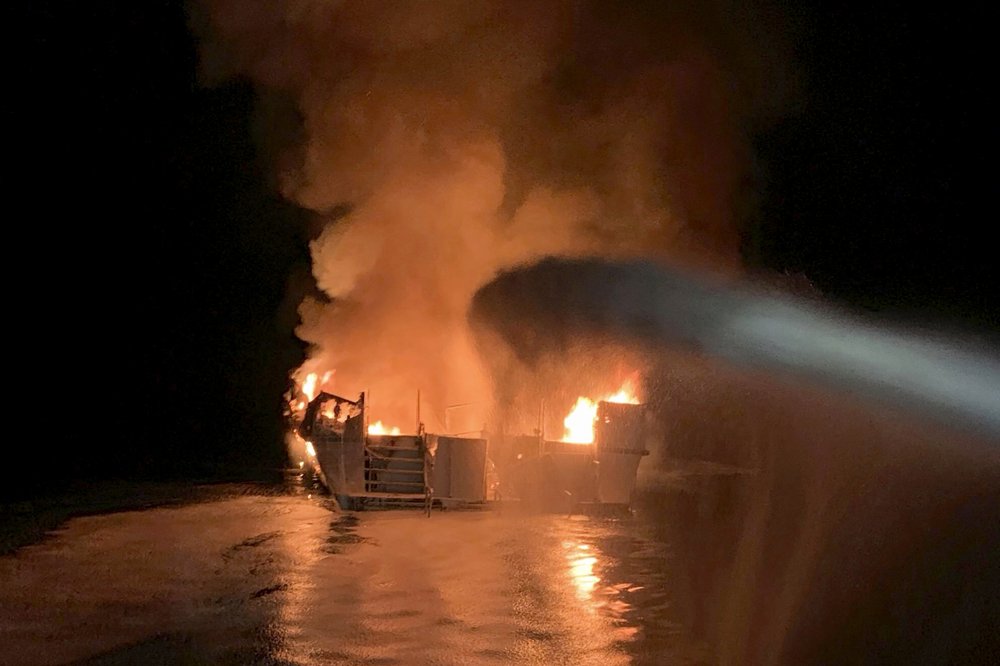
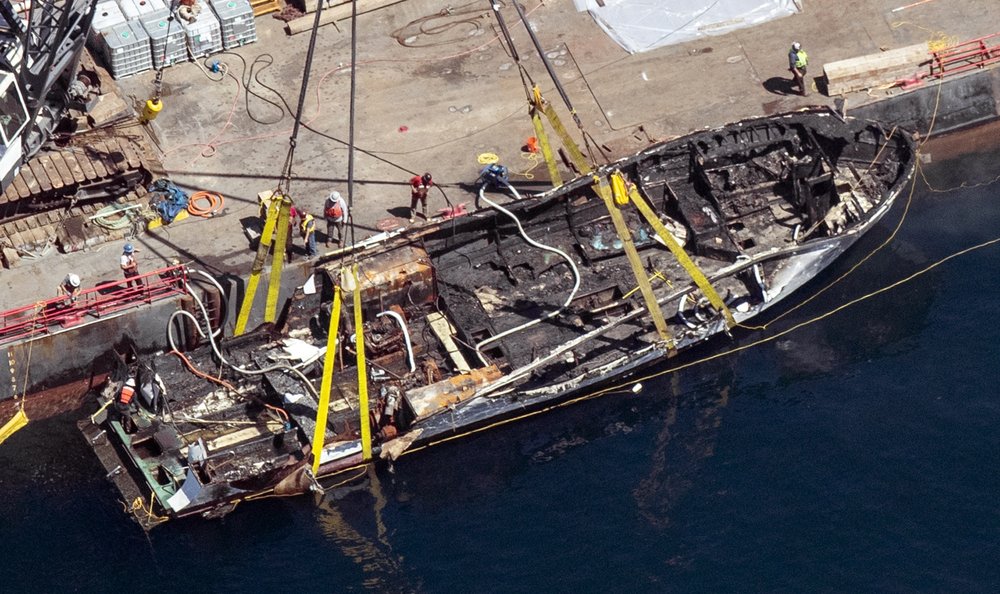
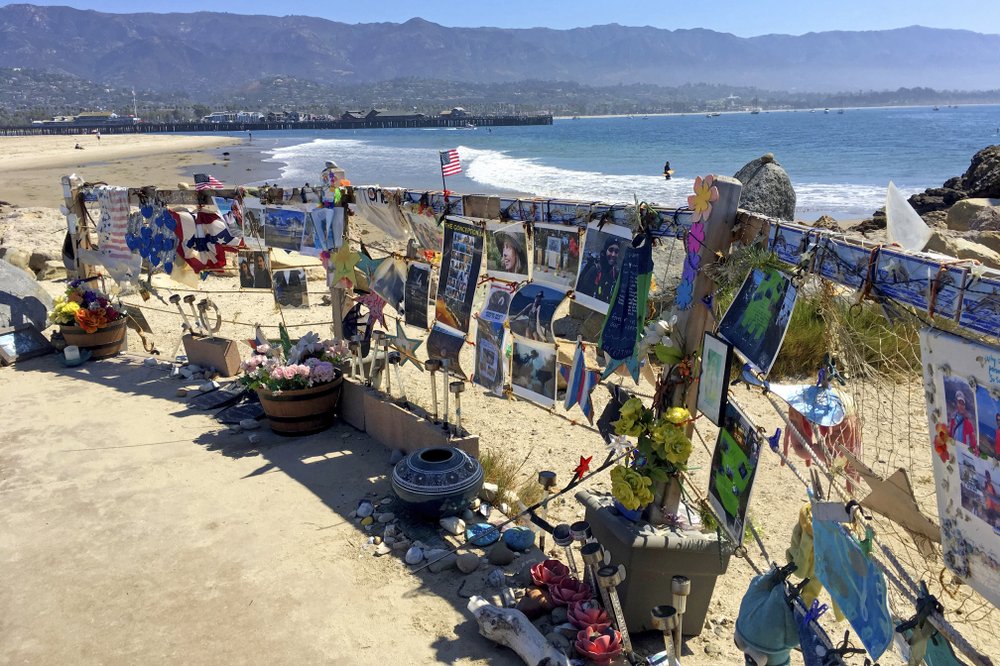
FILE – This Sept. 2, 2019, file photo, shows a standing memorial to the people who died aboard the Conception dive boat on Sept. 2, 2019, along the coast near the Santa Barbara, Calif., harbor. Federal authorities are expected to vote Tuesday, Oct. 20, 2020 on what likely sparked a fire aboard a scuba dive boat last year that killed 34 people off the coast of Southern California. The pre-dawn blaze aboard the Conception is one of California’s deadliest maritime disasters, prompting both criminal and safety investigations into the Sept. 2, 2019 tragedy that claimed the lives of 33 passengers and one crew member on a Labor Day weekend expedition near an island off Santa Barbara. (AP Photo/John Antczak, File)
Investigators said because the boat burned and sank, they couldn’t determine what caused the fire. But they found it began toward the back of the main deck salon, where divers had plugged in phones, flashlights and other items with combustible lithium ion batteries.
“Some people may walk away and say, ‘Well, I wish I knew what the ignition source was,’” Homendy said. “But the key here is that the focus should be on conditions were present that allowed the fire to go undetected and to grow to a point where it prevented the evacuation.”
Jeffrey Goodman, a lawyer representing family members of nine victims, said the board’s conclusions confirmed that the disaster was “predictable and preventable.”
“Truth Aquatics routinely violated federal law by failing to have a roving night watch,” Goodman said in a statement.
Homendy and the other board members also sharply criticized the Coast Guard, saying insufficient rules — such as a lack of a requirement for interconnected smoke detectors in all accommodation spaces and poor emergency escape arrangements — need to be rectified.
Coast Guard records also show that since 1991, no owner, operator or charterer has been issued a citation or fine for failure to post a roving patrol, which the NTSB said means there isn’t an effective system for checking the requirement and urged one be implemented.
“We cannot let this disaster, this tragedy, go to waste,” Sumwalt said.
The NTSB does not have enforcement powers and must submit its suggestions for safety enhancements to bodies like the Federal Aviation Administration or the Coast Guard, which have repeatedly rejected some of the board’s recommendations after other disasters.
“The Coast Guard will carefully consider the National Transportation Safety Board’s recommendations through a deliberate process, which will include review by all subject matter experts and senior leaders responsible for implementing the potential regulatory changes,” Lt. Cmdr. Scott McBride said in a statement.
After the Conception fire, the Coast Guard issued a bulletin recommending a limit on the unsupervised use of lithium ion batteries and extensive use of power strips and extension cords.
John Hillsman, an attorney for relatives of five victims, said his clients are anxious to see changes made. He called some of Truth Aquatics’ operations, including the roving watch violation, “just jaw-dropping.”
Five crew members, including Boylan, were asleep in the upper deck when the fire broke out around 3 a.m. in area above the only escape hatch to the bunkroom where the passengers and a single crewmember were sleeping. Boylan and the other four crewmen escaped by jumping into the water after making repeated attempts to try to save those below deck.
The size of the emergency hatch — 22 inches by 22 inches (56 centimeters) — met regulations, though safety board members criticized it as inadequate. Its location required passengers to climb to an upper bunk and then pull themselves through the opening.
“I don’t see how an average human with a life jacket on could get up through that hatch … without being a contortionist,” board member Michael E. Graham said.
A second exit from the bunkroom led to the same compartment.
The families of 32 victims have filed claims against the boat owners, Glen and Dana Fritzler, and Truth Aquatics. In turn, the Fritzlers and the company have filed a legal claim to shield them from damages under a maritime law that limits liability for vessel owners. Court filings show they have offered to settle lawsuits with dozens of victims’ relatives.
Krisher reported from Detroit.
Copyright 2020 Associated Press. All rights reserved.





















